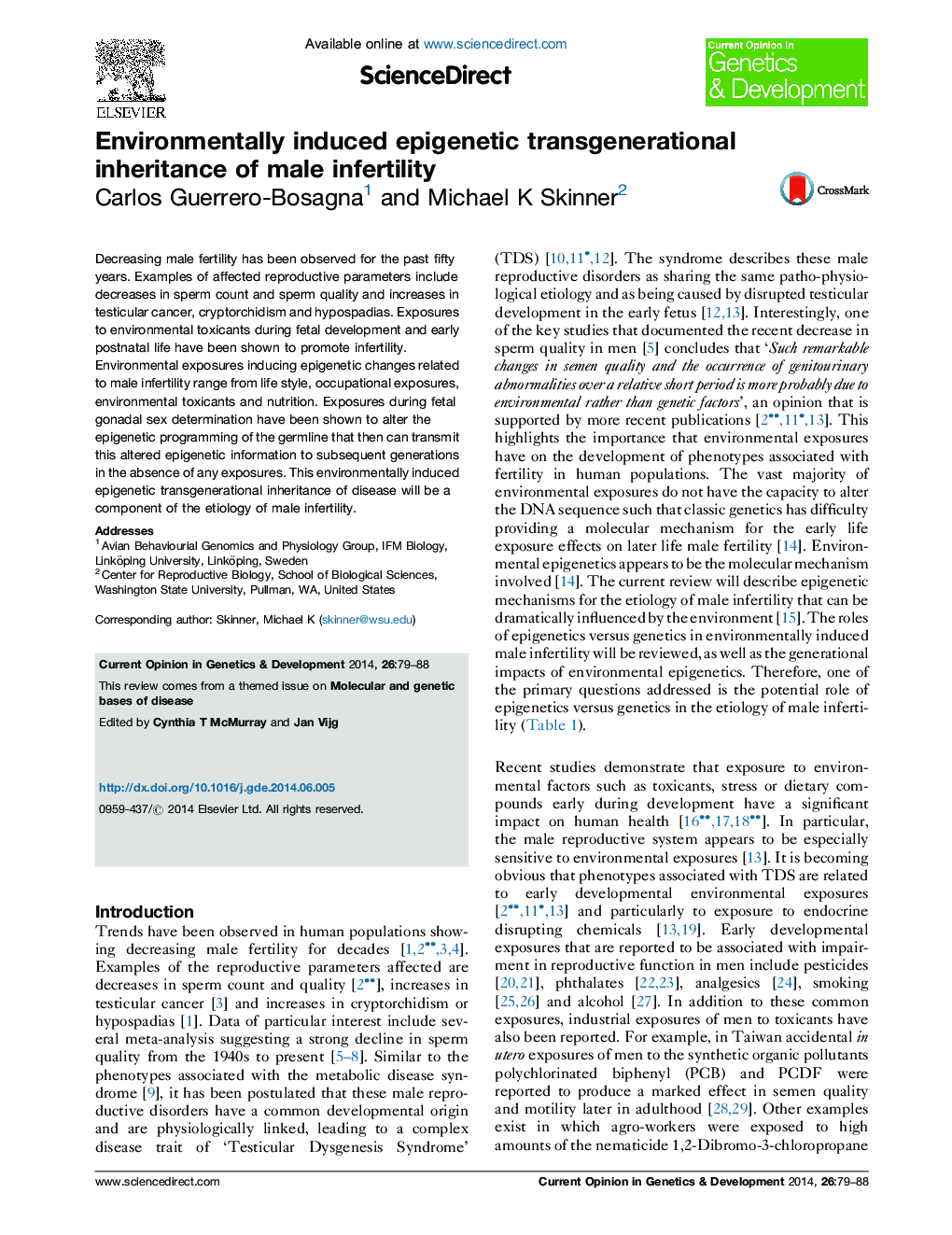| Article ID | Journal | Published Year | Pages | File Type |
|---|---|---|---|---|
| 5893356 | Current Opinion in Genetics & Development | 2014 | 10 Pages |
Abstract
Decreasing male fertility has been observed for the past fifty years. Examples of affected reproductive parameters include decreases in sperm count and sperm quality and increases in testicular cancer, cryptorchidism and hypospadias. Exposures to environmental toxicants during fetal development and early postnatal life have been shown to promote infertility. Environmental exposures inducing epigenetic changes related to male infertility range from life style, occupational exposures, environmental toxicants and nutrition. Exposures during fetal gonadal sex determination have been shown to alter the epigenetic programming of the germline that then can transmit this altered epigenetic information to subsequent generations in the absence of any exposures. This environmentally induced epigenetic transgenerational inheritance of disease will be a component of the etiology of male infertility.
Related Topics
Life Sciences
Biochemistry, Genetics and Molecular Biology
Developmental Biology
Authors
Carlos Guerrero-Bosagna, Michael K Skinner,
